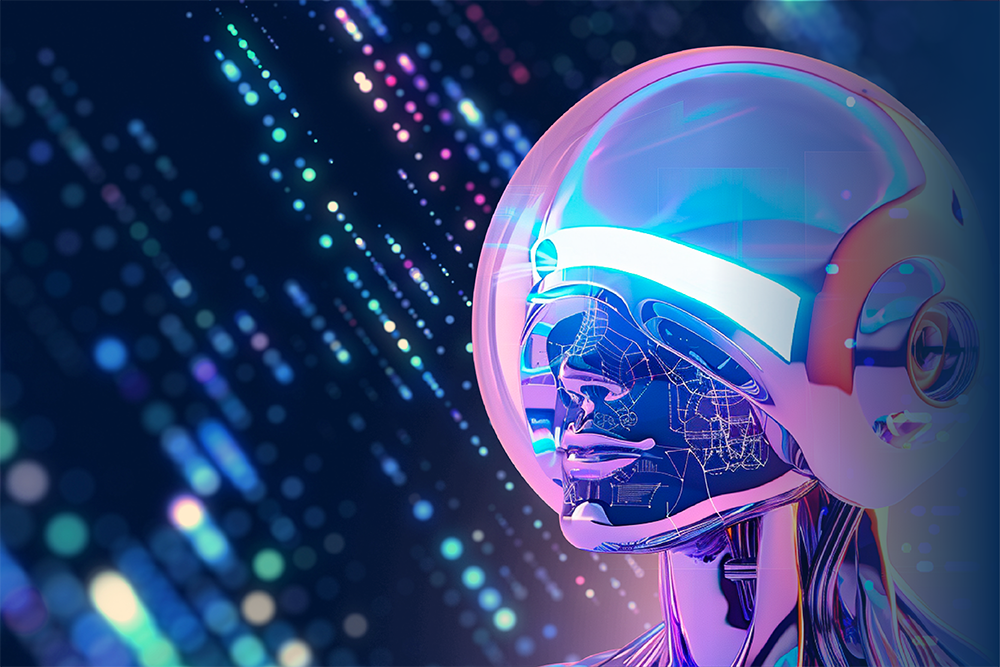Ever seen The Matrix? What if we told you that real-life agents do exist?
AI agents have been generating a lot of buzz lately. But before diving into what they are and how they can assist humans, let’s look back on the evolution of technology.
In the early 2000s, we lived through the tech boom where the internet became widely used with an influx of websites. Less than a decade later, app stores were first introduced to us. Fast forward to 2023, 3.5M apps were available globally on one platform alone.
Before GenAI went mainstream, we only had hundreds of AI models. But now, the number is edging close to 1M on open source machine learning model site Hugging Face. Today, we are at the dawn of a new chapter where hundreds of agents are already completing tasks on behalf of humans. By 2028, the agents market is expected to grow from $5B to $29B with more agents to bring food home, book vacations, simplify expense reports, create presentations, self-drive vehicles, provide tutoring lessons, diagnose medical symptoms, and everything in between.
What Are AI Agents?
AI agents are software entities that perform tasks and make decisions autonomously based on their defined scope. These agents have the ability to reason based on the logic and context they have been trained on — with or without human intervention. In short, AI agents are an evolution of GenAI. While GenAI can largely generate content one step at a time, agents can independently complete a sequence of steps and actions. With the transition to agents, AI capabilities evolve from productivity tools to actively managing interconnected business operations.
Imagine a company using GenAI to generate social media content. Initially, the AI system creates posts based on input data and predefined rules. When the company upgrades to an AI agent, AI functionality isn’t limited to generating content. This agent can analyze the performance of previous posts, adjust content strategy according to engagement, and decide when and where to post content — all without human intervention.
This shift from passive GenAI to proactive AI agents will be crucial for organizations to transform siloed actions into autonomous systems of engagement.
Agents in Action
In the world of integration and automation, Boomi has introduced six active AI agents to help IT developers autonomously design, manage, and orchestrate digital cohesion.
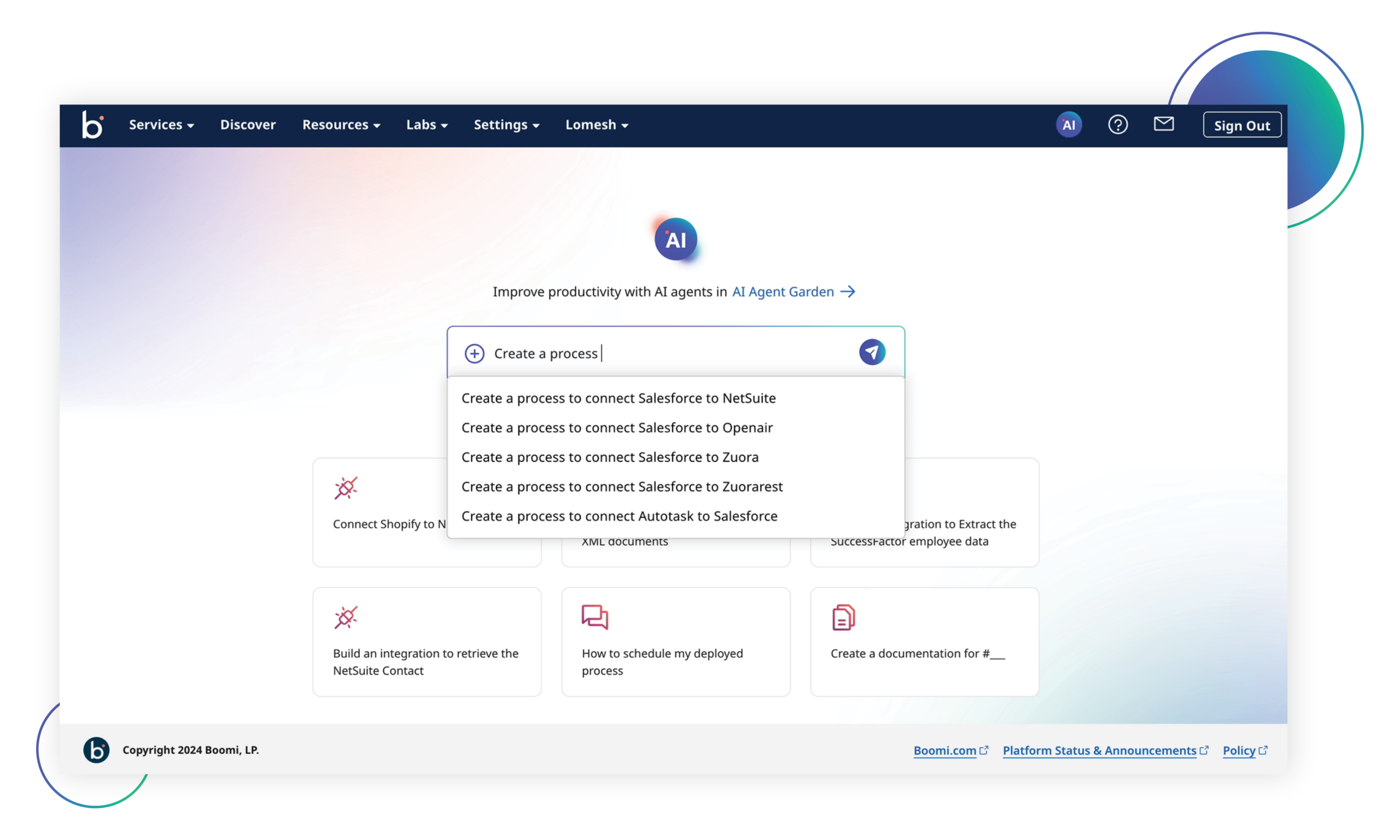
Boomi GPT, our conversational user interface, sits at the center of this experience, powering multi-agent collaboration. Developers can use natural language to communicate their integration and automation needs to Boomi GPT. In return, it will call on the appropriate agents to perform tasks.
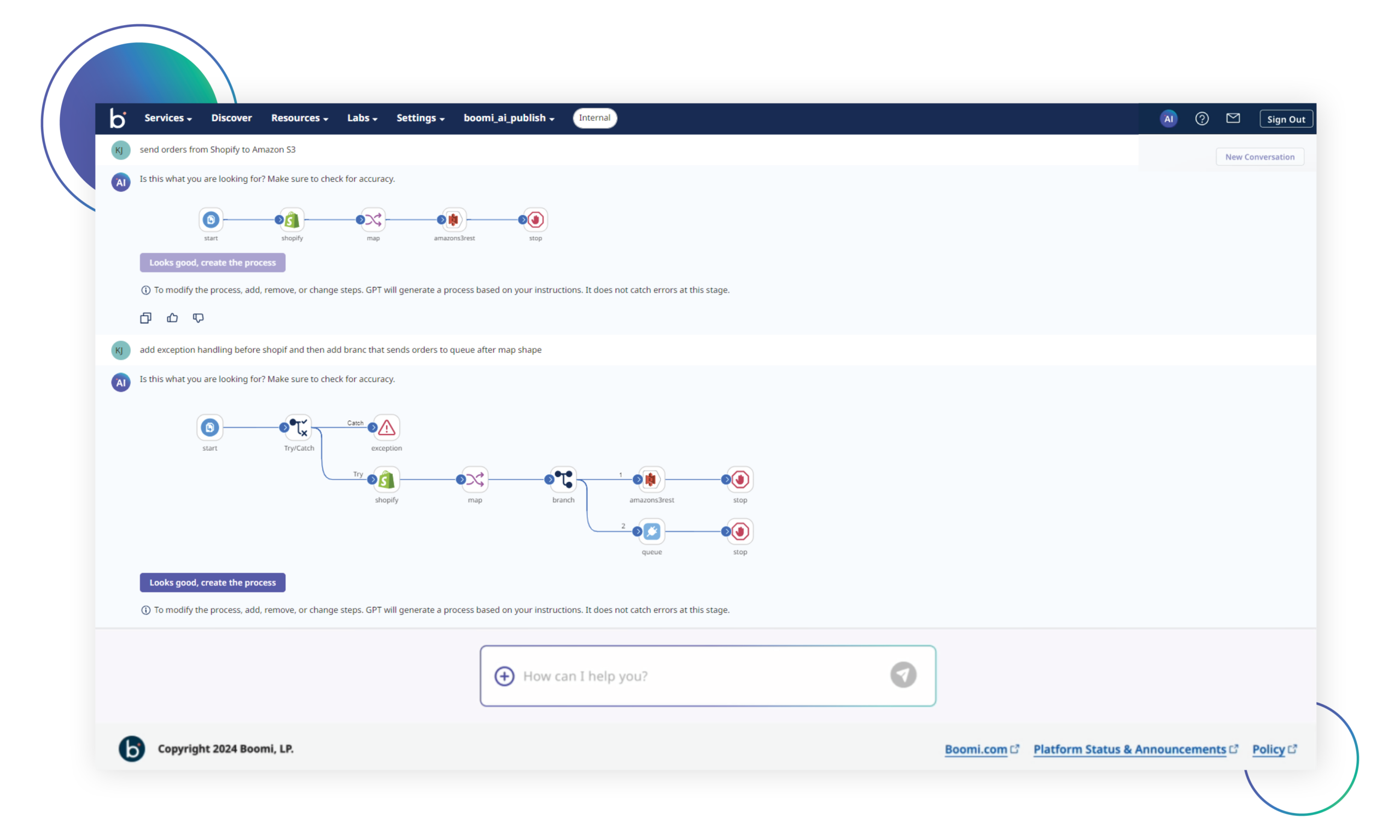
With a request like “Send orders from Shopify to Amazon S3”, Boomi DesignGen autonomously designs the integration process with automated data mapping based on 300M+ common patterns to jumpstart your project and save time. It also allows developers to reuse existing connections within your ecosystem, reducing costs.
If you want to optimize the existing work or integrations built by Boomi DesignGen to fit specific business requirements, you can leverage Boomi Pathfinder. Boomi Pathfinder is an agent that provides patented suggestions on the next best steps to take inside the Process Canvas.
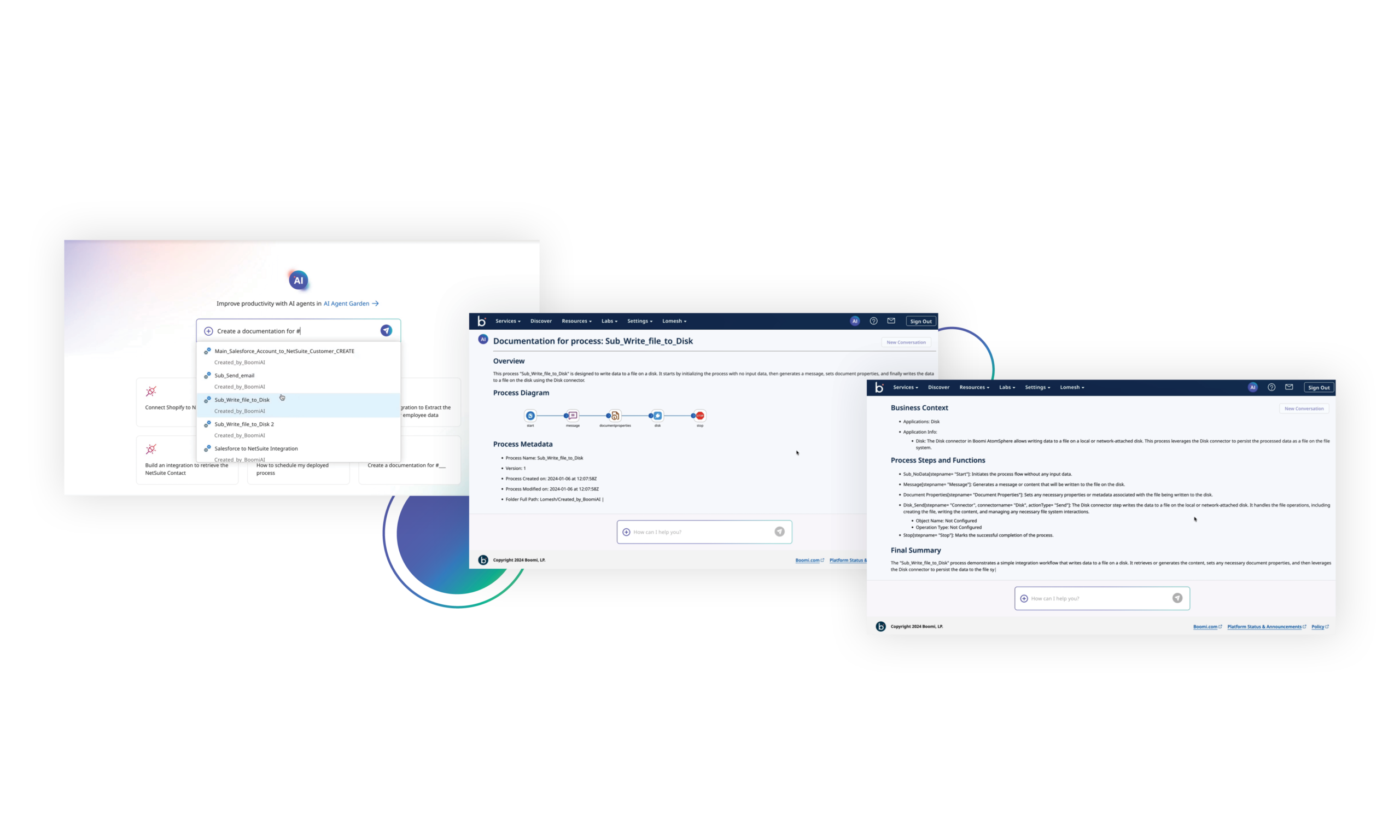
Now imagine you have built many integration processes. Would you rather spend time writing documentation for these processes or working on more important initiatives? The answer is clear. Boomi Scribe improves productivity and frees up time by autonomously writing documentation for any new or existing integration process — AI-generated or not.
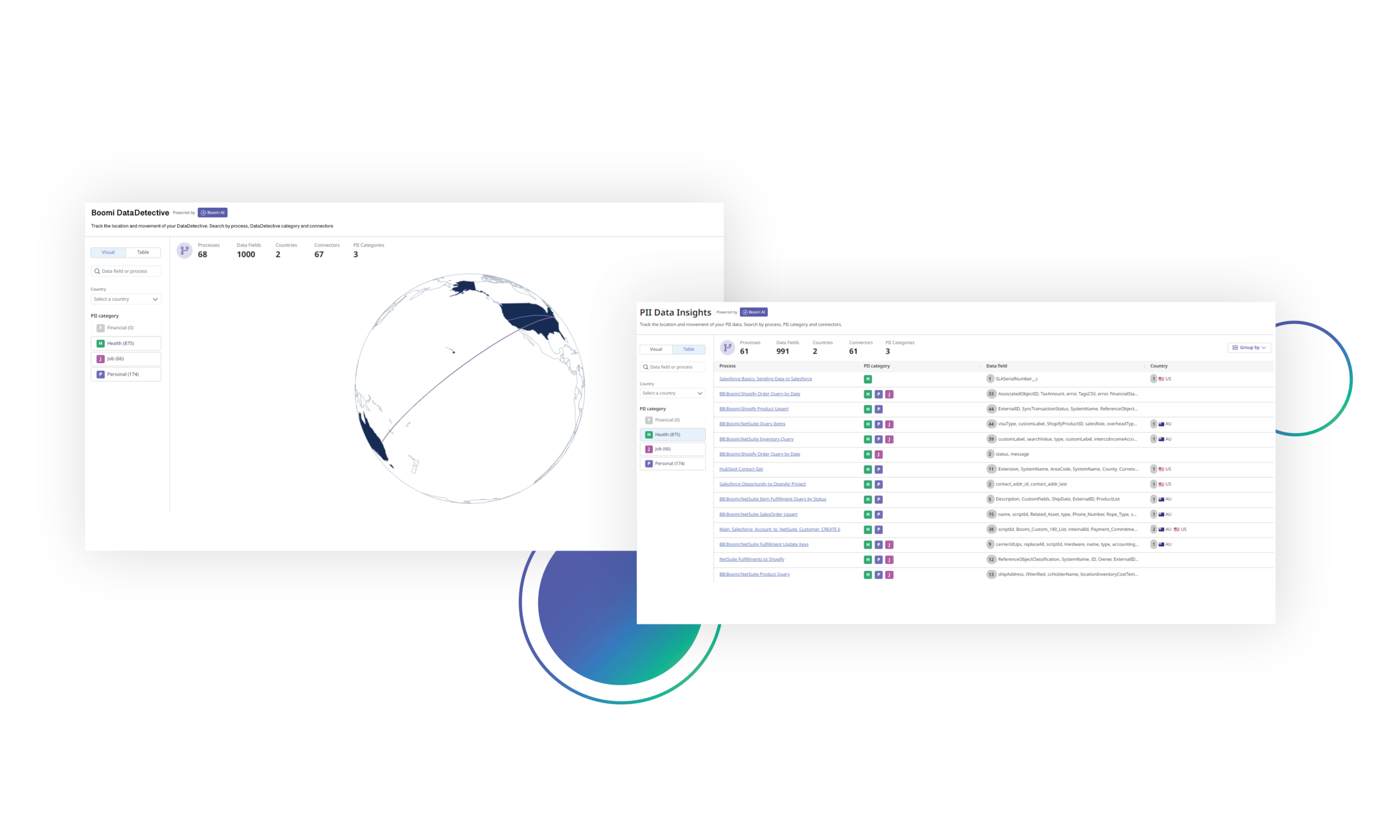
With over 8.2 billion records breached across all industries in 2023, data privacy and security remain a top priority when talking to executives from countless organizations. Every integration contains data, some of which is sensitive, that could expose organizations to legal risks. Boomi DataDetective automatically classifies personally identifiable information (PII) and tracks data movement across regions. In real-time through a filterable dashboard, organizations can be proactive about regional compliance, ensuring data resides where it’s supposed to.
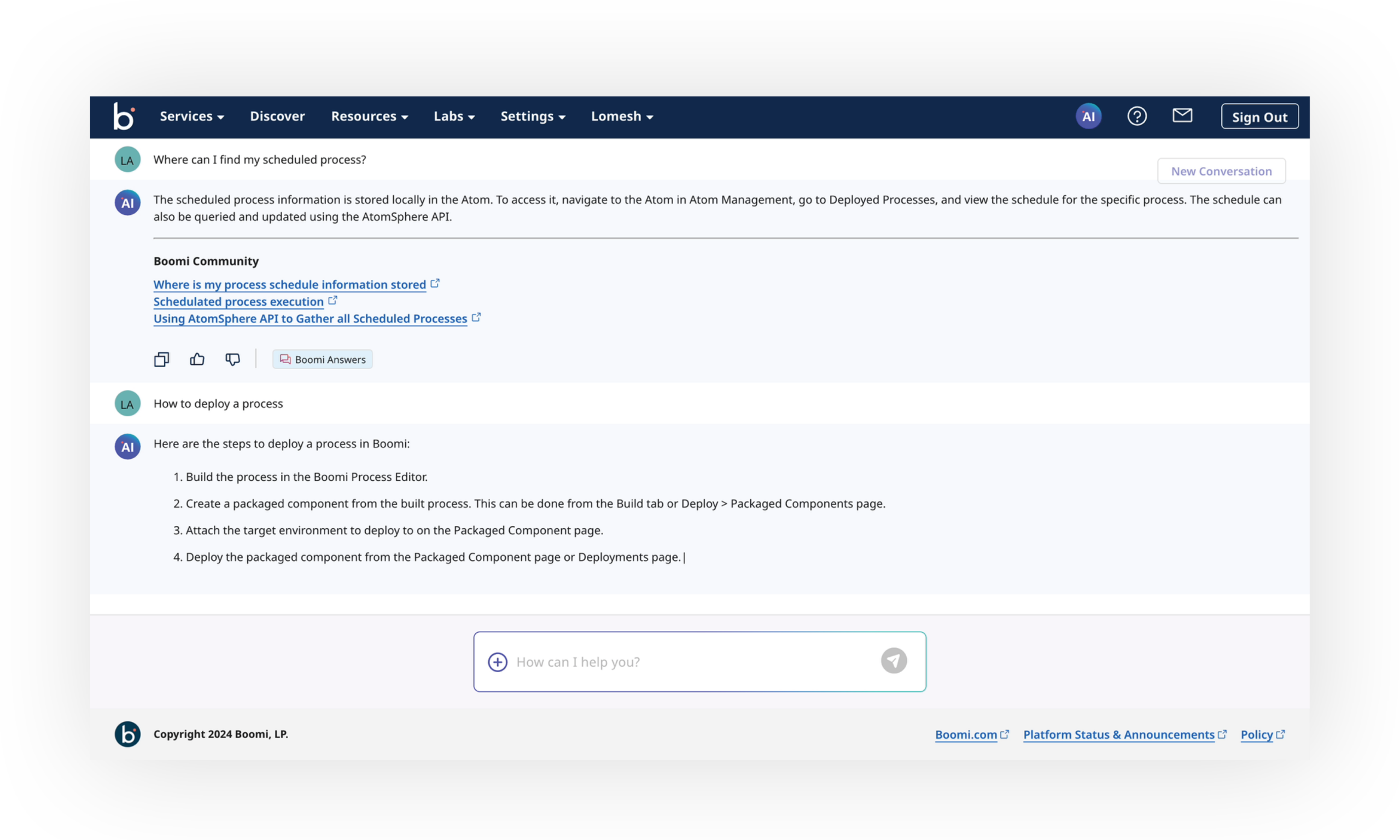
Lastly, we know that sometimes when questions arise or challenges occur, quickly finding solutions is a stepping stone to your project’s success. Boomi Answers is an agent that provides grounded (i.e. without hallucinations) and relevant answers about the Boomi platform and its functionality. With access to insights from over 310K+ community members and Boomi documentation, it saves time for users from scouring through community forums and discussion boards, enabling them to easily discover solutions significantly faster.
Starting with the July release, these six Boomi AI Agents will be included in the Boomi Enterprise Platform at no additional charge. We hope you are equally as excited to experience productivity without compromising security or incurring additional technical debt.
The Agentic Future
The Boomi AI agents above are just a few examples of how AI agents can shape the future of work in the context of integration and automation. In the near future, we anticipate thousands of agents will roam throughout organizations, autonomously filling in gaps, making decisions, and completing tasks on behalf of humans across use cases and industries. As companies adopt AI agents, a new challenge is on the horizon: how can organizations govern those AI agents? Stay tuned for more information in our ongoing AI Agents blog series.
Take the Boomi AI Product Tour to see how you can improve productivity with Boomi AI Agents.


 English
English 日本語
日本語